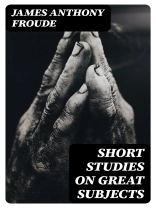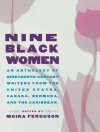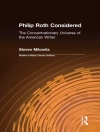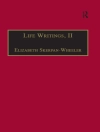In ‘Short Studies on Great Subjects, ‘ James Anthony Froude presents a series of essays that delve into a variety of significant themes, including history, philosophy, and morality. Richly infused with Froude’s characteristic prose, the work demonstrates a mastery of rhetorical devices and a knack for narrative elegance. Each essay reflects his deep engagement with the intellectual currents of the Victorian era, engaging with the tensions between empirical observation and moral reflection. Through critical analyses of figures such as Martin Luther and William Shakespeare, Froude anchors his discussions in a historical context while simultaneously inviting modern readers to reflect on the underlying human conditions that transcend time. James Anthony Froude (1818-1894) was not only a prominent historian but also a social critic and biographer whose breadth of knowledge informs his writings. Educated at Oxford, his experiences as a journalist and editor shaped his worldview, leading him to explore topics that resonate deeply with societal concerns. Froude’s keen insights into human nature and his critical engagement with contemporary thought reveal a man deeply invested in the moral and intellectual advancement of society. ‘Short Studies on Great Subjects’ is a compelling invitation for readers who seek to engage with the complexities of human thought and history. Froude’s penetrating analysis encourages reflection on fundamental issues that, while rooted in the past, continue to shape our present and future. This book is a must-read for anyone interested in the intersections of literature, morality, and historical analysis.
About the author
James Anthony Froude (1818–1894) was a prominent 19th-century English historian, biographer, and editor known for his controversial perspectives and vivid prose style. A disciple of Thomas Carlyle, Froude’s works often reflected Carlyle’s influence in their vibrant narrative form and moral judgements. Froude’s literary career was marked not only by historical treatises but also by his participation in religious debates of his era, particularly concerning his rejection of the orthodox Anglican views he once held as an Oxford Movement adherent. His ‘Short Studies on Great Subjects’ (1867–1883), a compilation of essays originally printed in various periodicals, exemplifies his wide-ranging interests from history to literature, and cultural criticism. These essays are considered as effective entry points into Froude’s oeuvre, synthesizing scholarly erudition with an accessible style to engage both academic and general readers. Froude served as Regius Professor of Modern History at Oxford from 1892 to 1894, and his influence extended beyond academia, making him a notable figure in Victorian literary circles. His historical narrative works often sparked debate among scholars particularly for their interpretative take on events and personalities—occasionally at the expense of strict adherence to historical objectivity.












